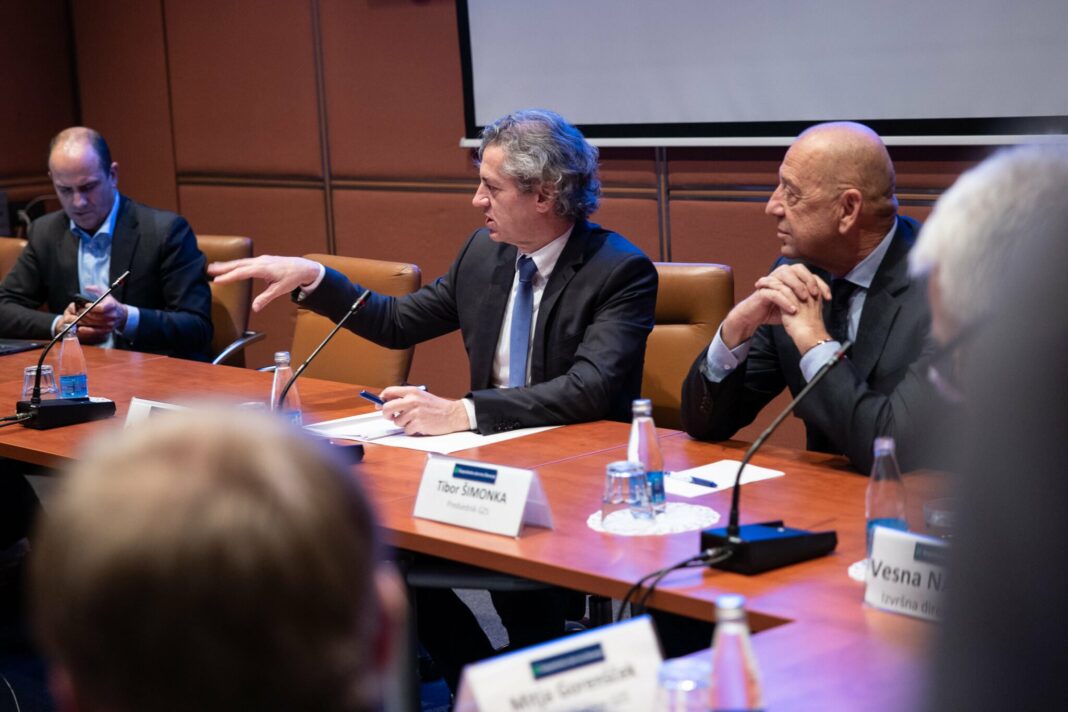By: G. B.
The business sector is receiving the invitation to dialogue with Prime Minister Robert Golob with scepticism, which he extended at the economic summit. Their lack of trust stems from the belief that they have been repeatedly deceived and burdened with additional obligations in recent times. They are also setting some conditions for renewed negotiations with the government.
“We accept the invitation of the Prime Minister to dialogue, but we are quite cautious because we have been deceived too many times in the past,” said Tibor Šimonka, the President of the Chamber of Commerce and Industry of Slovenia, at a joint press conference of 15 economic associations in Ljubljana. According to him, the business sector is justified in being distrustful, as it has only faced additional burdens in the past year. In this context, Šimonka listed the annulment of most of the tax reliefs on personal income from the end of the previous government’s term, with a promise of tax changes that did not materialise, additional obligations from the amendment to the labour relations law, the transformation of voluntary supplementary health contributions into mandatory ones, the introduction of a new levy to cover the costs of long-term care, and an increase in costs related to the posting of workers and cross-border provision of services.
If the Prime Minister is serious about discussions with the business sector regarding administrative relief and tax reform, the government should withdraw at least the proposed increase in the corporate income tax outlined in the law on reconstruction and development after the August disaster. Instead, introduce a mandatory solidarity contribution for post-flood reconstruction. The government should not accept solutions in the emergency health law that burden employers and should delay the implementation of the law on cross-border provision of services until an alternative solution is proposed, stated Šimonka. According to him, the business sector wants, at the beginning of discussions on tax reform, to put all taxes burdening employers on the table, followed by discussions on where to increase and where to decrease the burden.
Šimonka also highlighted the issue of energy. According to him, the green transition is a fact, but energy self-sufficiency of the country is essential. Therefore, all low-carbon sources should be utilised, and a decision on a new nuclear power plant in Krško should be made as soon as possible. The business sector suggests that a referendum on this matter be held in the spring, coinciding with the European Parliament elections.
Representatives of the business sector, while stating that they will not call people to the streets at the moment, are critical of certain measures, such as the work registry.

